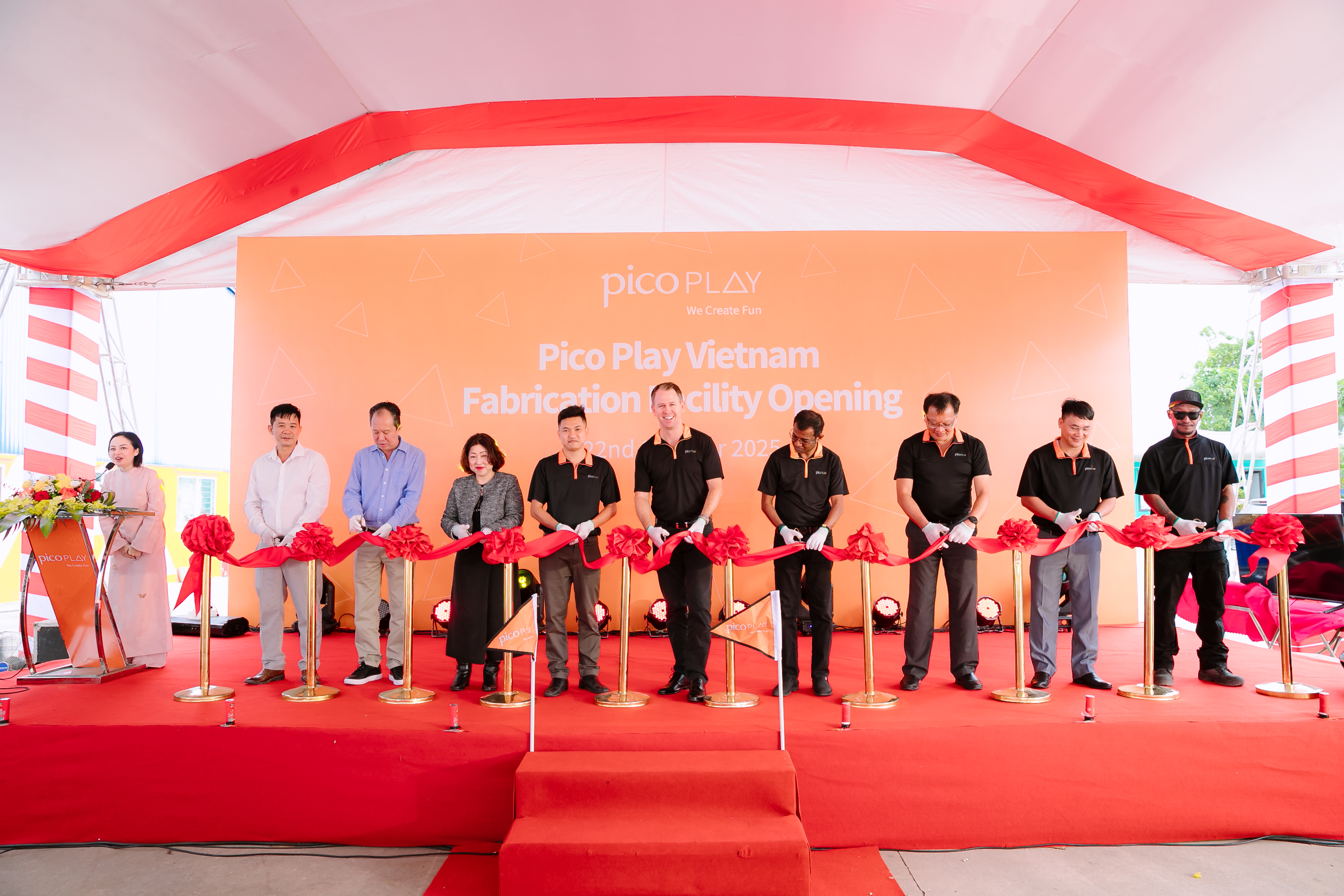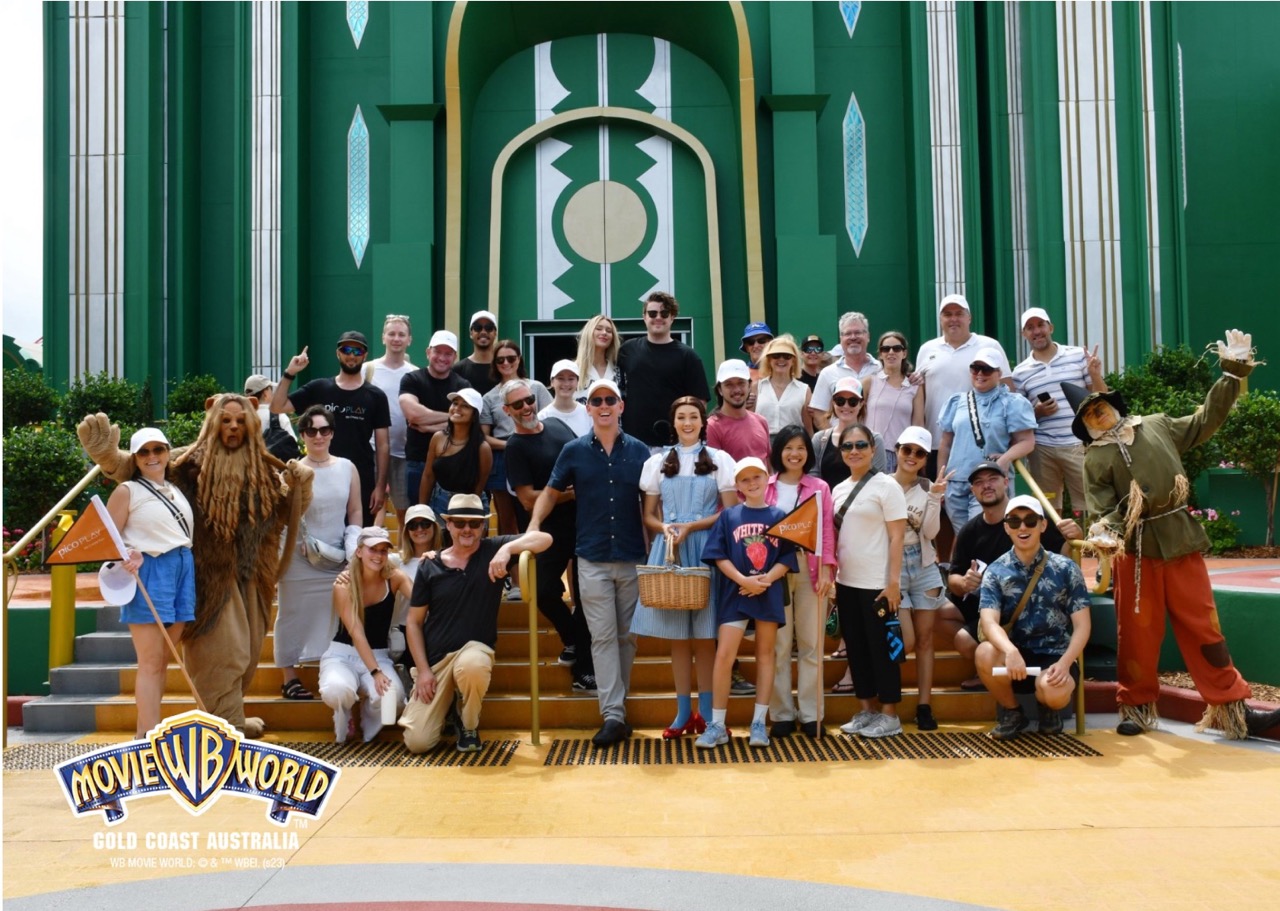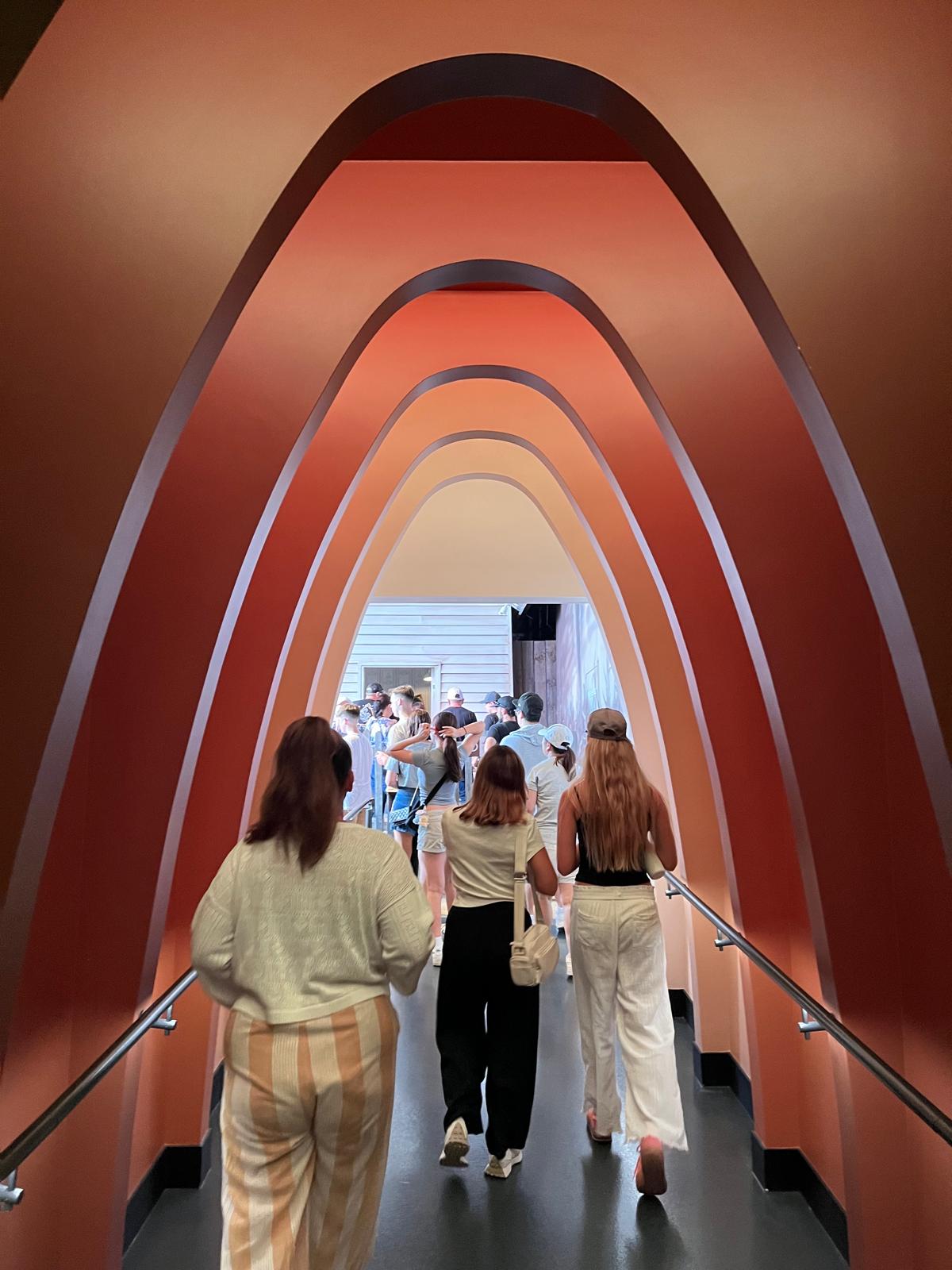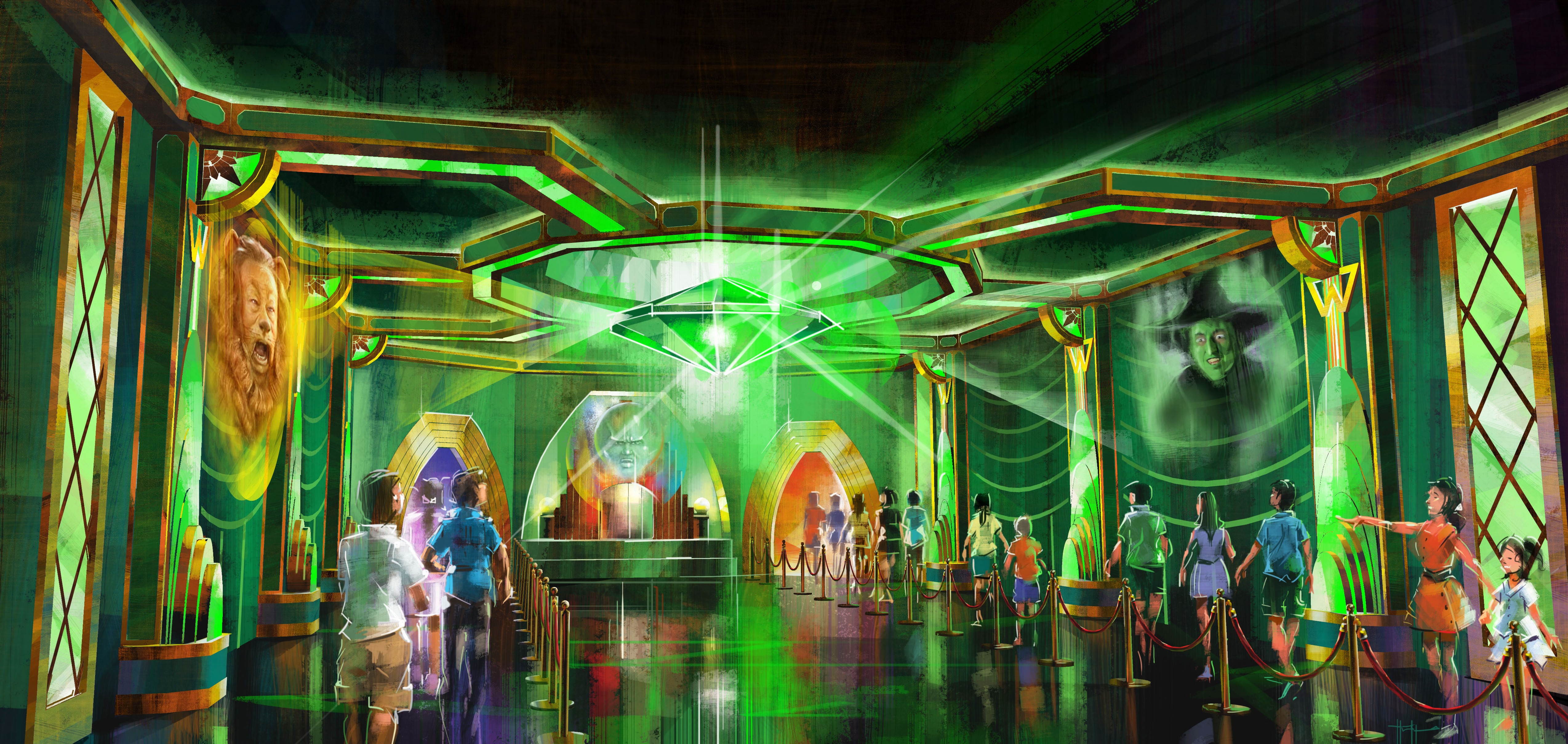Thrill Makers
Versions of this article appears at Nola
In this interview, we hear from Francis Jackson, a Business Director for Pico Play. Francis is an experienced senior leader who’s spent much of his career in large-scale, customer-focused environments. He’s held key roles within the Tourism and Leisure Industry of Sport, Recreation and Entertainment. During this time he’s led known locations such as Falls Creek ski resort in Australia and Alton Towers Resort in the UK where he’s led business growth, operational change, and team development.
Question 1: Tell me about a defining moment or experience early in your career that set you on a path of becoming who you are today. In other words, how did you end up in this industry?
At the core of it, my journey started with customer service. While in high school, I got into hospitality, working in restaurants, cocktail bars, and then after leaving school, into hotels. I had great mentors who set high expectations, shaping my approach to service.
My real passion, though, was sport, specifically skiing and snowboarding. That passion led me to travel and work globally, first as a ski instructor, then as a race coach, a trainer and examiner of technical skiing. Throughout this time, I learned to articulate complex techniques in simple ways that made sense to others.
That ability, to create experiences and share knowledge, translates across industries, whether in sports, recreation, or entertainment. At its heart, it’s about bringing magic to life for people, and that’s what ultimately led me into this industry.
“The theme park industry thrives on storytelling, technology, and innovation”.
Question 2: You have this unique vantage point across the industry. Are there any under discussed challenges that concern you?
As a former operator and now consultant working on both feasibility and operations, I often highlight challenges I’ve seen firsthand, especially those that impact both the entertainment and sport/recreation industries but don’t get much attention.
- The first is consumer relevance. Theme parks rely on storytelling, tech, and innovation, all requiring ongoing, significant investment. Staying relevant is a constant challenge, as audiences evolve and expectations shift. Operators must adapt while navigating long development timelines.
- Cost management is another major pressure point. Many costs like wages driven by regulation and rising utility prices, all somewhat beyond the operator’s control, adding strain to already tight budgets.
- Staffing is especially complex. Parks revolve around delivering experiences, and while automation helps, it can’t replace the human touch. Balancing efficiency with guest interaction is crucial. Maintenance teams, in particular, are vital, yet attracting and keeping skilled workers is tough, especially with better-paying, less demanding jobs available elsewhere.
- Ride maintenance and asset lifecycles are also often overlooked. Newer rides come with integrated asset management systems, but older attractions don’t, making them harder to maintain. Downtime frustrates guests, and as ticket prices rise, so do expectations. If a park is experiencing abnormal downtime, it undermines pricing models like dynamic or calendar-based pricing.
- Tech adoption brings its own challenges. As parks add tech/sfx-driven experiences, IT teams must grow. Yet traditional mechanical and electrical systems remain just as critical. Operators can’t just shift resources, they need to expand them. Outsourcing can help, but in-house expertise is essential for consistent guest experiences.
- Park design strategy is another key area. Layout decisions like queue placement, multi-use spaces, and fast-track access directly affect capacity and satisfaction. Without thoughtful planning the design stages, operators may be forced to reduce hours, increase costs, or adjust operations, all of which impact guests in order to support margins.
In the end, delivering standout experiences requires a careful balance of investment, innovation, and operational efficiency. These challenges are real, but they also open the door to smart, future-focused solutions that can keep the industry evolving.
“A strong indicator of an engaging experience is when guests pause their digital interactions to be present in the moment”.
Question 3: What technology is shaping guest experiences? What's a piece of emerging tech that you believe could fundamentally change the industry in the next few years?
That’s a fascinating question. Broadly, there’s a strong shift toward using AI, tech, and software to streamline operations and drive efficiency. With rising costs, businesses are finding ways to optimise resources without sacrificing the guest experience, often through automation and smarter workforce strategies.
- There’s also growing focus on improving the full customer journey, from online touch points to in-park experiences. Frictionless processes, dynamic pricing, and yield optimisation are becoming more advanced. Personalisation is rapidly improving too, as businesses get better at using data to extract insights. Predictive analytics is helping optimise staffing, ride ops, guest flow, and recommendations.
- Seamless digital integration is key like Amazon’s model of minimal steps to purchase. Parks are applying this to ticketing, ride bookings, food orders, and shows. Wearables and biometric tech, like RFID bands all reduce friction, making entry, payments, and personalised engagement easier. Transparent LED displays are enabling dynamic, location-based content tailored to individuals are among the many new developments that are also emerging.

- Immersive, interactive attractions are evolving as well. Storytelling is becoming more responsive, with the most compelling experiences pulling guests, especially younger ones—away from their devices and into the moment. That level of engagement is the new benchmark.
- Hyper-personalisation is a game changer. From tailored hotel amenities to curated park experiences, adapting offerings to guest preferences boosts satisfaction and revenue. CRM systems, RFID, and behaviour tracking enable deeper personalisation.
- Capacity management and smart queuing are still developing but hold huge potential. As ride uptime improves, trust in virtual queuing will grow, allowing better crowd flow. 5G will also support real-time connectivity, enabling more responsive park ops and guest interactions.
- Next-gen ride systems, like trackless tech, are creating more fluid, unpredictable experiences, adding excitement and innovation.
- Security is also evolving. Surveillance, threat detection, and access control are getting smarter. Biometric and contactless entry, AI crowd monitoring, and drones (including thermal imaging) are enhancing safety. Smart screening and weapons detection are advancing too, depending on regulations.
- Incident management is improving through geofencing, real-time monitoring, and simulation-based training, all of which strengthens team development and their response without needing full-scale drills.
Overall, the industry is heading toward “smarter parks” that use technology not just for efficiency and revenue, but to deliver highly personalised, seamless, and secure guest experiences. These innovations will redefine how people engage with attractions, making them more intuitive, engaging, and safe.
Question 4: Have any companies or parks caught your attention for pushing the boundaries, and which parks specifically?
Absolutely! There's so much happening in this space. Some of the big names that immediately come to mind include:
- Universal Studios – Epic Universe: This park is set to redefine what’s possible, especially with its immersive lands and seamless integration of digital and physical storytelling. Super Nintendo World’s interactivity through wearable Power-Up Bands and virtual queuing will be interesting to watch if they can get it right, it will set a new standard in guest expansions and operational excellence.

- Disney: Their itinerary planning tool, Disney Genie, is driving hyper-personalised park visits. They're also advancing holograms, next-gen animatronics, and sustainable innovations, such as solar-powered attractions and zero-emission transport systems.
- Merlin Entertainments: Their Midway Experiences (now branded as Gateway) are evolving, particularly with augmented and virtual reality elements in attractions like Madame Tussauds. They're also expanding their intellectual properties with Peppa Pig and Jumanji rides, pushing immersive storytelling while improving operational sustainability.
- Six Flags & Cedar Fair Merger: This merger brings new opportunities for enhancements and technological upgrades, thanks to the combined investment power.
- Saudi Arabia’s Qiddiya & Six Flags: The projects being developed in the Middle East, backed by sovereign wealth funds, are on another level. The creativity and ambition driving these developments are setting new benchmarks for the industry. The sheer scale and freedom to innovate in this region are remarkable.
- Efteling’s latest project: The fusion of folklore and modern tech in the new attraction Danse, Macabre! is a glimpse into what could be possible if theme parks fully embrace this level of storytelling.
- Chimelong Ocean Kingdom: Their investment in blending visitor experiences with wildlife conservation is noteworthy. They’re pioneering new ways to bring guests closer to the natural world.
- Europa-Park: The Mack family continues to push boundaries with innovative attractions and themed experiences.
- Paultons Park (UK): While not as widely known, their investment in immersive theming, guest-centric operations, and IP-based attractions is setting them apart. They’re leveraging data to refine and enhance visitor experiences. Even as an independent park, they’re outperforming some larger players through strategic expansions and operational excellence.

Question 5: Fast Forward to hopping in a time machine, which amusement park would we find you at, and what ride would you be going on over and over again?
Growing up in Sydney, it would have to be Luna Park. That’s where you’d find me. I still vividly remember a ride called The Rotor. It must have been the late ’70s when I first went on it. You’d stand in a giant spinning drum, facing each other, and as it picked up speed, the floor would drop away, leaving everyone stuck to the wall by centrifugal force.
What made it even more memorable was watching people who had done it before, they would flip themselves upside down mid-spin. I tried to keep my head straight, but it tilted to the side, and suddenly everything felt completely off-axis. That ride has always stayed with me as one of my all-time favourites.

"We have to stay curious and get hands-on experience with guest interactions"
Question 6: What advice would you give someone joining the amusement park industry as a supplier. What should they do to hit the ground running?
It all goes back to the power of creative storytelling and magic. We are experience creators, and everyone in the industry, including the supply chain, plays a role in that. If you view your work through the lens of creating experiences, you'll find common ground with operators.
We have to stay curious and get hands-on experience with guest interactions because, ultimately, the guest experience trumps everything else. It’s all about understanding how your product or service adds value to that experience.
Being adaptable and innovative is also key. The question should always be: How does your product improve the guest journey? And does it enhance the experience? If you can answer that, you're already ahead.


.png)
.png)



.jpg)

